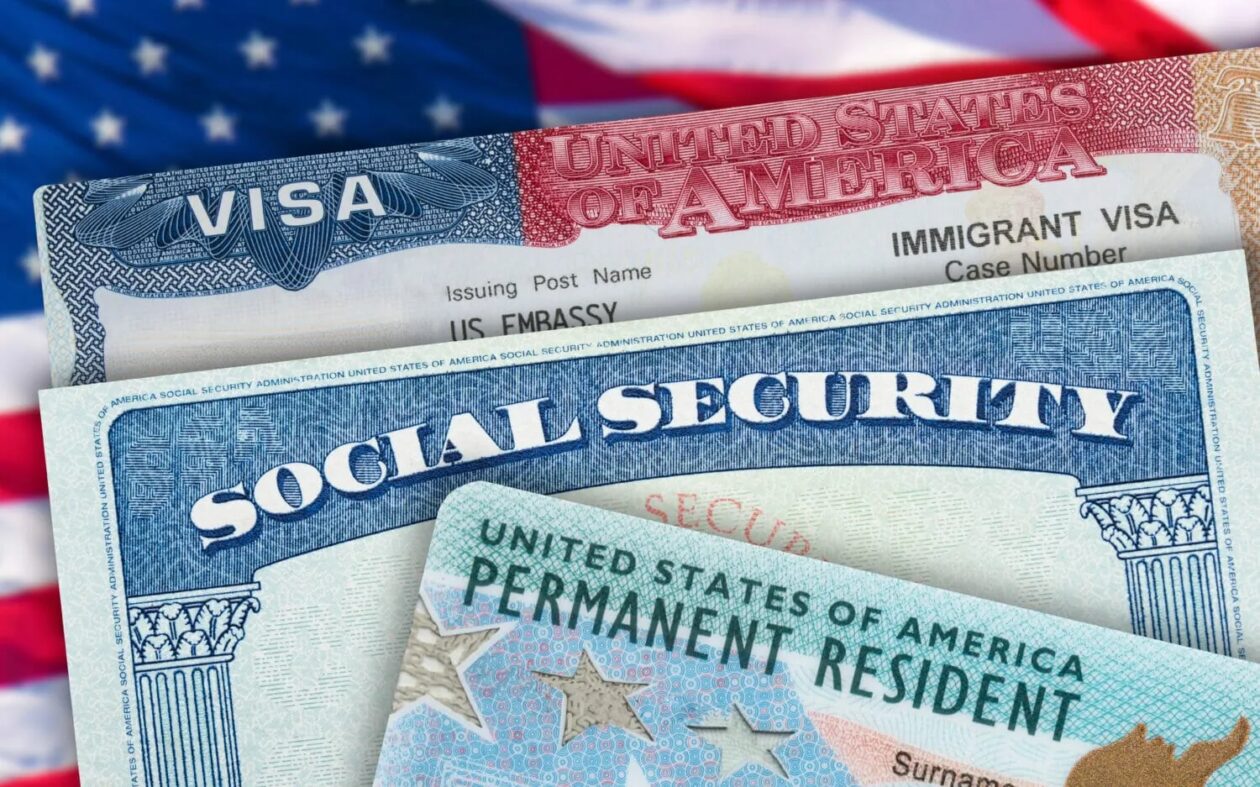Dreams that Come True in Real Life, not Only Movies: Preparing for Life in the United States as a DV Lottery Winner
Winning the Diversity Visa (DV) Lottery is a life-changing opportunity that opens the door to a new chapter in your life, filled with promise, opportunities, and the American dream. The DV Program, also known as the Green Card Lottery, is a chance to get an American permanent resident status based on a random drawing. If you are one of the lucky DV Lottery winners, congratulations! Here’s a guide to help you prepare for your life in the United States.
This Article Include
- Understand the Basics of the DV Lottery Program
- Complete the visa application process
- Financial preparation
- Secure accommodation
- Job search and employment
- Healthcare and insurance
- Language Proficiency
- Legal, immigration, and citizenship requirements
- Financial management
- Education opportunities
- Networking and building relationships
Understand the Basics of the DV Lottery Program
Before you embark on your journey to the United States, it’s crucial to understand the fundamentals of the DV program.
To participate, you must be a native of an eligible country, which typically excludes nations with high immigration rates to the U.S. Additionally, you need to meet the educational or work experience requirements, possessing a high school diploma or equivalent, or two years of work experience within the last five years in an occupation that requires at least two years of training. One of the crucial aspects is submitting a recent, compliant passport-sized photo that meets the program’s strict specifications, such as background color, head positioning, and size, as any deviation can lead to disqualification.
DV Lottery winners are announced six months after the entry period ends, typically in early May. You can check your results manually on the official lottery website by entering your Confirmation Number.
This link provides detailed instructions on how to find out if you have won the lottery.
Complete the visa application process
Upon receiving your DV Lottery selection notification, you must complete the visa application process. Completing the visa application process for the DV Lottery entails a series of essential steps. First, you’ll need to carefully fill out the visa application form, known as the DS-260. This form collects vital information about your background, family, and intended address in the United States. You’ll also be required to pay the necessary visa application fees.
Following that, you’ll schedule and attend a visa interview at the U.S. embassy or consulate in your home country. During the interview, you’ll present your supporting documents, such as your passport, birth certificate, police clearance certificates, and medical examination records, to demonstrate your eligibility and admissibility. Preparing thoroughly for the interview and answering all questions truthfully is crucial.
If approved, you’ll receive a visa stamp in your passport, allowing you to enter the United States as a lawful permanent resident, and instructions on what to do next upon arrival. This process may vary slightly depending on your home country and specific circumstances, so it’s essential to refer to the U.S. Department of State’s instructions and guidelines for precise information.
Financial preparation
Moving to a new country requires careful financial planning. Start by creating a budget that accounts for initial expenses like travel costs, visa fees, and living costs in the United States. It’s wise to have some savings to cover unexpected costs during your initial months in the country.
Secure accommodation
Securing accommodation in the United States is a pivotal step in your journey. To start, research various neighborhoods in your chosen destination to determine which one aligns with your preferences: proximity to work or schools, safety, or affordability. Consider temporary housing options like hotels, motels, or Airbnb while you search for a permanent residence.
When hunting for a place to live, visiting potential rentals in person whenever possible and inspecting them thoroughly is advisable. Ensure you understand the lease terms, including rent, security deposits, and additional fees. A good rule of thumb is to budget around 30% of your monthly income for housing costs.
Also, build a credit history in the U.S., as it can impact your ability to secure rental properties in the future. Finally, don’t hesitate to seek advice from local housing agencies or immigrant support organizations, as they can provide valuable insights and assistance during your accommodation search.
Job search and employment
Conducting a successful job search and securing employment in the United States requires careful planning and perseverance. Begin by tailoring your resume to American standards, emphasizing your skills, qualifications, and any relevant experience. Utilize online job portals such as Indeed, LinkedIn, Glassdoor, and Monster to explore job opportunities in your field.
Attend networking events, job fairs, and industry-specific conferences to connect with potential employers and fellow professionals. Leverage the services of local American Job Centers or workforce development agencies, which offer job search assistance, resume workshops, and career counseling. Join professional organizations related to your field, as they often provide job listings and networking opportunities.
Lastly, consider volunteering or interning in your industry to gain valuable U.S. work experience and build your professional network, which can lead to job offers in the future.
Healthcare and insurance
Healthcare and insurance are essential considerations when preparing for life in the United States. The U.S. healthcare system is predominantly private, and access to healthcare services is often tied to insurance coverage. You should research the available healthcare options in your area and consider obtaining health insurance to cover medical expenses. Many employers offer health insurance as part of their benefits package, so inquire about this when seeking employment.
In the United States, health insurance can vary widely in terms of coverage and cost, so carefully review and compare different insurance plans to find one that suits your needs and budget. It’s essential to understand the terms and conditions of your insurance policy, including deductibles, copayments, and coverage limits. Additionally, familiarize yourself with your area’s healthcare facilities and providers and establish a primary care physician for routine check-ups and medical needs. Taking these steps will help ensure you have access to quality healthcare services and financial protection in case of illness or injury.
Language Proficiency
Improving your English language skills is crucial for effective communication and career advancement in America. Consider enrolling in English language courses or joining language exchange programs. You can also start online by using language learning apps, but remember, nothing beats practice!
Legal, immigration, and citizenship requirements
Initially, upon arrival in the U.S., you’ll be granted a Green Card. This card allows you to live and work in the United States indefinitely. Maintaining your status is crucial by renewing your Green Card before it expires, typically every ten years, and avoiding criminal activities that could lead to deportation.
You can apply for American citizenship after five years of continuous residence in the U.S. This involves demonstrating good moral character, passing a citizenship test on U.S. history and government, and attending an interview to establish your commitment to the United States. Obtaining U.S. citizenship offers numerous benefits, including the ability to vote and sponsor family members for immigration.
Financial management
Opening a bank account in the United States is essential for managing your finances. Research different banks and their offerings to find the one that best suits your needs. Also, establish a credit history by obtaining a credit card and using it responsibly.
Education opportunities
Researching education opportunities in the United States is crucial if you have children or if you plan to pursue further studies. First, identify your educational goals, whether enrolling your children in K-12 schools or pursuing higher education. You can research K-12 options by contacting local school districts or using online resources like GreatSchools.org, which provides ratings and reviews for schools nationwide.
For higher education, explore accredited colleges and universities in your area of interest using platforms like the National Center for Education Statistics’ College Navigator. Additionally, consider financial aid options, scholarships, and the admission requirements for the educational institutions you’re interested in. Plan ahead and gather all necessary documents, such as academic transcripts and standardized test scores.
Networking and building relationships
Building a support network is essential for your integration into American society. Attend community events, join clubs or organizations, and use social media to connect with other immigrants and locals. Networking can help you find job opportunities and create a sense of belonging.
Be open-minded and culturally sensitive in your interactions with others. The United States is a diverse country with people from all backgrounds, and respecting differences is essential for harmonious coexistence.
Winning the DV Lottery is a remarkable opportunity but comes with challenges and adjustments. By preparing thoroughly and embracing the process, you can make a smooth transition to life in the United States, where you can pursue your dreams and contribute to the vibrant tapestry of American society.


